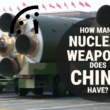Critical issues provoke enduring disagreements
By Naeem Ahmad Salik, May 31, 2012
Throughout this Roundtable's lively debate, the participants have vigorously contested one another's positions and largely stuck to their own. I will not deviate from that pattern now. Indeed, I would like to revisit some of my earlier arguments, trying to articulate them in a way that is perhaps more understandable and persuasive.
Sunday Jonah and I have engaged in a discussion about expanding the authority of the International Atomic Energy Agency (IAEA) so that it can better implement the Nuclear Non-Proliferation Treaty (NPT); Jonah has urged significant expansion, an idea that I have treated skeptically. Commenting on this disagreement, Jonah in his second essay wrote that "Salik himself [has] noted… that the NPT suffers from inadequate institutional support structures…. [I]t seems that Salik, to an extent greater than his second essay would indicate, agrees with me that the agency's authority should be expanded."
This is not quite correct. I do recognize, however, that the NPT lacks an organization dedicated to its effective implementation, along the lines of the Organisation for the Prohibition of Chemical Weapons and the Preparatory Commission for the Comprehensive Nuclear-Test-Ban Organization. Because the IAEA's founding predated the NPT, and because the agency's primary purpose was to support US President Dwight Eisenhower's "Atoms for Peace" program, overseeing the treaty is a task that was not originally foreseen and for which the agency is inadequately equipped.
Still, those who argue for strengthening the treaty's institutional support and oversight system should remember that, precisely because such structures were not part of the treaty regime as it was approved by signatories, these structures cannot easily be added now. Adding them would require an amendment to the treaty, and such an amendment would not necessarily be accepted by member states. After all, a majority of IAEA members have not ratified the 2005 amendment to the Convention on the Physical Protection of Nuclear Material, despite the passage of seven years.
A second point on which Jonah and I have diverged is nuclear terrorism. At the risk of sounding complacent, I would contend that this threat is sometimes exaggerated for political reasons. Certainly, an expert like Jonah understands that, even if a terrorist organization were to acquire the materials needed to construct a nuclear device — itself a huge challenge — the technical difficulty of constructing a usable device would remain enormous. And any device that a terrorist organization produced would be large, heavy, and not suitable for delivery by any currently available delivery system. Thus, in the unlikely event that a terrorist outfit were to acquire a nuclear device, the device would in all probability be used in the country where the nuclear materials were obtained. This reality tends to undermine alarmist arguments about nuclear terrorism's importance as a threat to international security. Still, every country in possession of nuclear materials bears equal responsibility for nuclear security, and the communiques of both the Washington and Seoul nuclear security summits have stressed that states bear a "fundamental responsibility" to maintain security over their nuclear materials and facilities.
Adel M. Ali and I have disagreed over his insistence that India, Pakistan, and Israel should join the treaty as non-nuclear weapon states. Ali correctly points out that the treaty's purpose is to prevent states that do not have nuclear weapons from acquiring them, while achieving disarmament in states that do have them. The fact remains, however, that India, Pakistan, and Israel have never joined the treaty, and therefore cannot be accused of violating the treaty's stipulations or spirit. (Countries like Egypt, meanwhile, acceded to the treaty despite the fact that Israel's nuclear weapons program predated the NPT, and then agreed to the treaty's indefinite extension in 1995, losing leverage that might have been exercised later.) I stand by my earlier proposal that India, Pakistan, and Israel join the treaty as nuclear weapon states, accepting the obligation to enter into good-faith negotiations toward eventual nuclear disarmament.
As for Ali's proposed nuclear-weapon-free zone in South Asia, it should be remembered that Pakistan in 1975 mooted precisely this idea through a resolution in the UN General Assembly — but the zone never materialized because of Indian opposition. At this point, the idea of a South Asian nuclear-weapon-free zone has been overtaken by events, and barring general and complete nuclear disarmament, nuclear weapons are in South Asia to stay.
Topics: Nuclear Energy, Nuclear Weapons
Share: [addthis tool="addthis_inline_share_toolbox"]














